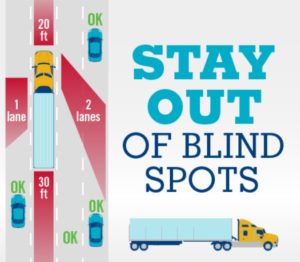

Supporting friends or family who have cancer
When someone faces a life-threatening health crisis such as a cancer diagnosis, it’s difficult for friends and colleagues to know how to best offer their support. Being there when someone we care about needs help is very important. Often, people feel so overwhelmed by their own sadness, fears and discomfort that they are unsure about the right thing to say or do. It’s normal to feel uncomfortable when facing deep emotions, but here’s one good rule of thumb: Don’t make it about you or how you feel. It’s about them. Listen with compassion. Validate feelings. Don’t try to fix things because you can’t. Let them know that you care.
There are many good resources offering guidance in how to support people who are coping with critical illnesses. The American Cancer Society offers excellent tips and information on what to expect when someone you know has cancer, as well as basic do’s and don’ts for how to offer support. Cancer.net also offers support resources for people who are coping with cancer, including tips for family and friends. While these sources focus on cancer, much of the guidance about offering support is also applicable in other situations of serious illness, trauma, grief or loss. If you or a loved one need support in facing a life-threatening illness, you can also find resources at www.theEAP.com for various health conditions, caregiver support and more. Our counselors are available by phone 24/7 for support.
Back to School
It’s “back to school” season. If you’re a family with kids, this can be an exciting but stressful and hectic time of year. It’s time to finish up any lingering summer assignments, reestablish healthy routines and patterns for the school year and plan extracurricular activities. Your EAP offers a variety of Child Care Locators that can help you find everything from Day Care and child transportation services to after school programs and tutoring. Simply login to www.theEAP.com and click on
“Locators.” As the school year progresses, watch for signs of stress and adjustment as kids adapt to new teachers, academic challenges and peer interactions. Check out your EAP’s online Parenting Resources for help in addressing any issues that may surface.
Defensive Driving: Sharing the road with trucks
 At about 2.5 tons, the average car is at a distinct disadvantage to buses and trucks that can weigh from 15 to 40 tons, or more. How comfortable are you sharing the road with these giants? Large trucks and buses have huge blind spots on all four sides and the length of time to stop an eighteen wheeler is 40% greater than that of an automobile. They also need extra turning room on all sides. Never try to squeeze by or get between a turning vehicle and the curb. Tailgating a truck or bus puts you in a blind spot. The Department of Transportation offers this handy infographic on blind spots. For more tips on defensive driving, login in to www.theEAP.com.
At about 2.5 tons, the average car is at a distinct disadvantage to buses and trucks that can weigh from 15 to 40 tons, or more. How comfortable are you sharing the road with these giants? Large trucks and buses have huge blind spots on all four sides and the length of time to stop an eighteen wheeler is 40% greater than that of an automobile. They also need extra turning room on all sides. Never try to squeeze by or get between a turning vehicle and the curb. Tailgating a truck or bus puts you in a blind spot. The Department of Transportation offers this handy infographic on blind spots. For more tips on defensive driving, login in to www.theEAP.com.
September is National Preparedness Month
September is National Preparedness Month, a good time to replenish your first aid kit, check your insurance policies and update your family emergency plan for any natural hazards you may face. Know how you’ll contact one another and reconnect if separated. Establish a family meeting place that’s familiar and easy to find.
www.theEAP.com | 800.252.4555
